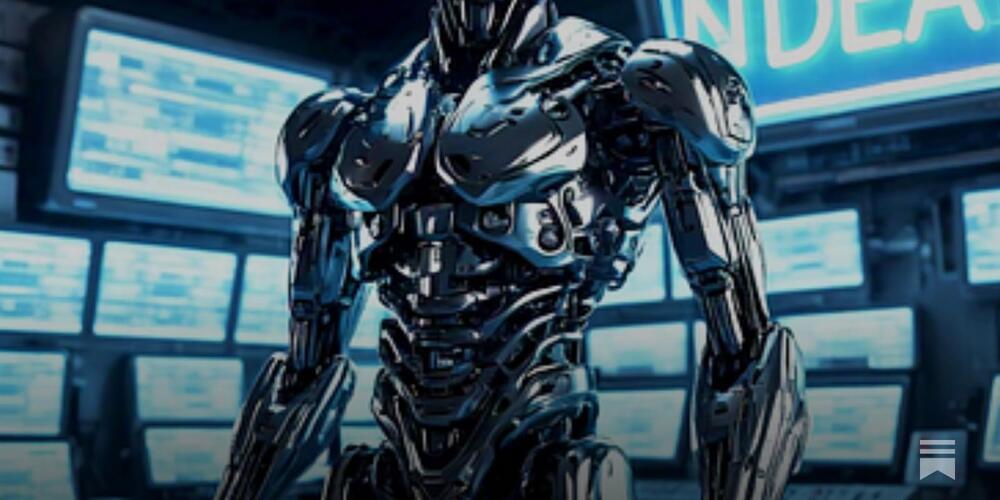The company says artificial intelligence could help surface jobs that remain hidden from typical search queries.



In today’s AI news, When rivals take a different approach and succeed, it sometimes pays to change course. This is what Sam Altman said OpenAI will do, according to a Reddit AMA session on Friday. Altman was asked about DeepSeek, which has taken the tech world by storm after rolling out top-performing AI models that are relatively cheap to use.
Then, Andreessen Horowitz general partner and Mistral board member Anjney “Anj” Midha first spied DeepSeek’s jaw-dropping performance six months ago. That’s when DeepSeek introduced Coder V2, which rivaled OpenAI’s GPT4-Turbo for coding-specific tasks, according to a paper it released last year.
S V3 and R1 models. These efforts “achieved significant bypass rates, with little to no specialized knowledge or expertise being necessary.” ‘ + And, MLCommons, a nonprofit AI safety working group, has teamed up with AI dev platform Hugging Face to release one of the world’s largest collections of public domain voice recordings for AI research. The dataset, called Unsupervised People’s Speech, contains more than a million hours of audio spanning at least 89 languages.
In videos, in this episode of “How To Build The Future,” YC President and CEO Garry Tan sits down with Bob to discuss the lessons learned from his time at OpenAI, scaling laws, his advice for startups, and what all of this means for the jobs of the future.
Then, “Maybe I Got Carried Away” is an experimental short film that fuses playful visuals with a surreal narrative. It was created by [@panaviscope](https://www.youtube.com/@panaviscope) using Sora generated shots. The story follows a protagonist who begins releasing vibrant balloons into the sky as a personal act of rebellion against her city’s monotony.
Meanwhile, Shashank Dogra breaks down AI Agents in the simplest way possible. AI Agents: The Future of Business & Technology Agents are the new apps. In the near future, we expect to see thousands of AI agents transforming the way businesses operate.
We close out with NVIDIA Developer showing how DeepSeek-R1 model is packaged as NVIDIA NIM microservice delivers superior throughput performance and can be easily deployed on any GPU-accelerated system with standard API. Get started now at build.nvidia.com.
Connor Leahy joins the podcast to discuss the motivations of AGI corporations, how modern AI is “grown”, the need for a science of intelligence, the effects of AI on work, the radical implications of superintelligence, open-source AI, and what you might be able to do about all of this. Here’s the document we discuss in the episode: https://www.thecompendium.ai Timestamps: 00:00 The Compendium 15:25 The motivations of AGI corps 31:17 AI is grown, not written 52:59 A science of intelligence 01:07:50 Jobs, work, and AGI 01:23:19 Superintelligence 01:37:42 Open-source AI 01:45:07 What can we do?
Keep Your Digital Life Private and Be Safe Online: https://nordvpn.com/safetyfirst.
Welcome to our comprehensive guide on “Nano Robots.” In this enlightening video, we will take a look at what nano robots are, how they work, and the ways in which they are being used today. We will examine the potential of nano robots and how they could be used in the future. We will also discuss the advantages and disadvantages of using nano robots.
Nano robots are made up of very small robots that are only a few nanometers across and are powered by electricity, magnets, or light. These robots can be used for many different things, like fixing damaged cells, keeping an eye on and controlling the environment, and fighting off diseases and infections. Nano robots can also be used to do hard jobs like surgery, making things, and even going to space.
These robots are very accurate and good at what they do, which makes them perfect for use in medicine and industry. Nano robots can be programmed to do many different things, like keep an eye on and control the environment, find and fix damage, and even fight off diseases and infections. They can also be used for more complicated jobs, like surgery, making things, and going to space.
Nano robots have a lot of benefits, such as being small, accurate, and fast. They are also very flexible because they can be programmed to do many different things and used in many different ways. But there are some problems with using nano robots, such as the cost of making them and the chance that they will break down.
In the end, nano robots are an important part of the future of technology and robotics. They are very small and accurate, and they can be used for many different things. They have many pros and cons, but with the right programming and use, they can change the way people interact with the world around them.
#ai.

In today’s AI news, Mark Zuckerberg announced a huge leap in Meta Platforms’s capital spending this year to between $60 billion to $65 billion, an increase driven by artificial intelligence and a massive new data center.
Zuckerberg plans to increase the company’s capital expenditures by as much as roughly 70% over 2024.
In other advancements, Hugging Face has achieved a remarkable breakthrough in AI, introducing vision-language models that run on devices as small as smartphones while outperforming their predecessors that require massive data centers. The company’s new SmolVLM-256M model, requiring less than one gigabyte of GPU memory, surpasses the performance of its Idefics 80B model from just 17 months ago — a system 300 times larger.
And, Anthropic has launched a new feature for its “Claude” family of AI models, one that enables the models to cite and link back to sources when answering questions about uploaded documents. The new feature, appropriately dubbed “Citations,” is now available for developers through Anthropic’s API.
Meanwhile, can AI agents reliably click on all images showing motorcycles or traffic lights for us? It might be too early to tell, considering that a robot will essentially have to tell a website that it is not a robot. However, it looks like at least one of OpenAI’s Operator users was able to have the AI agent beat CAPTCHAs for him.
S strategic radar. Disruptions aren Then, In this special episode of Lightcone, the Y Combinator hosts are joined by YC partner and creator of Gmail Paul Buchheit to dig into some of the latest trends in the world of AI startups. They recorded their conversation at a recent retreat where 300 of the top AI founders in the world gathered to share expertise and make predictions about how this technology will shape our future.
And, What new kinds of jobs will AI bring that we never could have imagined before? In this special two-part episode, Reid Hoffman and Aria Finger explore this question and more with Sierra co-founder and OpenAI chairperson Bret Taylor.

The Stargate Project is a new company which intends to invest $500 billion over the next four years building new AI infrastructure for OpenAI in the United States. We will begin deploying $100 billion immediately. This infrastructure will secure American leadership in AI, create hundreds of thousands of American jobs, and generate massive economic benefit for the entire world. This project will not only support the re-industrialization of the United States but also provide a strategic capability to protect the national security of America and its allies.
The initial equity funders in Stargate are SoftBank, OpenAI, Oracle, and MGX. SoftBank and OpenAI are the lead partners for Stargate, with SoftBank having financial responsibility and OpenAI having operational responsibility. Masayoshi Son will be the chairman.
Arm, Microsoft, NVIDIA, Oracle, and OpenAI are the key initial technology partners. The buildout is currently underway, starting in Texas, and we are evaluating potential sites across the country for more campuses as we finalize definitive agreements.
Trump—flanked by larry ellison, sam altman, & masayoshi son—announces project stargate.
Trump announces Project Stargate, a $500 billion initiative backed by major tech leaders, aimed at revolutionizing U.S. AI infrastructure, creating jobs, and enhancing healthcare through advanced technologies. AI Infrastructure and Economic Impact.
🏗️Project Stargate, a $500+ billion AI infrastructure initiative, aims to construct colossal data centers and physical campuses across the US, potentially creating over 100,000 American jobs.
🌐The project will build physical and virtual infrastructure to power next-generation AI advancements, with Oracle, SoftBank, and Microsoft as key partners, establishing a new US-centered industry. ## Healthcare Applications.
S AI will enhance healthcare by providing doctors with condition-specific treatment plans based on data from top hospitals like Memorial Sloan Kettering and Stanford. ” + s cancer research focuses on early detection via blood tests, personalized vaccines designed using AI in 48 hours, and robotically-produced mRNA vaccines. ” +## Technological Advancements.
S AI-driven approach promises to accelerate cancer treatment development, potentially leading to unprecedented cure rates. ” + 📊The initiative will leverage AI to improve electronic health records, benefiting patients in underserved areas like Indian River Reservation.
Tomorrow at 1PM PT / 4PM ET, we Premiere a new episode of Robots In Space, and this is about bots, including the latest on Phoenix from Sanctuary AI, the impact of cognitive automation on jobs, the Economic Singularity, plus our proprietary Event Horizon Indicator.
Discover how robotics and AI are reshaping our economic landscape in this eye-opening analysis. As an engineer, I break down the latest developments in humanoid robots, particularly Sanctuary AI’s breakthrough in hydraulic robotics and robot dexterity. Learn about my proprietary Event Horizon Indicator that tracks our progression toward the Economic Singularity through labor force participation and unemployment trends. From warehouse robotics to manufacturing automation, understand how the robot workforce is transforming industries and what this means for the future of work. Whether you’re interested in AI economics or concerned about tech unemployment, this video provides crucial insights into the ongoing robot revolution and its impact on our economy.

In today’s AI news, François Chollet, an influential AI researcher, is launching a new startup that aims to build frontier AI systems with novel designs. The startup, Ndea, will consist of an AI research and science lab. It’s looking to “develop and operationalize” AGI. It’s a goalpost for many AI companies …
In other advancements, San Francisco-based Luma released Ray2, its newest video AI generation model, available now through its Dream Machine website and mobile apps for paying subscribers (to start). The model offers “fast, natural coherent motion and physics,” according to CEO Amit Jain.
And, Microsoft has been positioning Copilot as the “UI for AI.” Now, as the next step in this work, it is launching Microsoft 365 Copilot Chat — a rebranded version of its free AI chat experience for businesses, enhanced with agentic capabilities.
Meanwhile, the World Economic Forum surveyed 1,000 global employers, who collectively employ more than 14.1 million workers across 22 industries, for its Future of Jobs report—and it found that 41% of bosses think they’ll need to reduce their workforce in the next five years. Why? Because they predict there will be a pool of workers whose skills or roles become obsolete thanks to AI.
S. Get a guide to the concept of agents and multi-agent frameworks, and learn how to build complex AI applications that can drive business value. ” + s next in AI. ” + And, to kick off Possible’s fourth season, Reid and Aria sit down with world-renowned computer scientist Dr. Fei-Fei Li, whose work in artificial intelligence over the past several decades has earned her the nickname “the godmother of AI.” An entrepreneur and professor, Fei-Fei shares her journey …
We close out with Professor Yoshua Bengio is a pioneer in deep learning and Turing Award winner. Bengio talks about AI safety, why goal-seeking “agentic” AIs might be dangerous, and his vision for building powerful AI tools without giving them agency.
Thats all for today, however new advancements, investments, and partnerships are happening as you read this. AI is moving fast, subscribe today to stay informed.
Meta CEO Mark Zuckerberg said that the company will likely release an AI model that acts as a “midlevel engineer” this year.